July 1, 2025 | 08:18 GMT +7
July 1, 2025 | 08:18 GMT +7
Hotline: 0913.378.918
July 1, 2025 | 08:18 GMT +7
Hotline: 0913.378.918
On June 30 in Hanoi, the Korea International Cooperation Agency (KOICA) organized a workshop titled “Enhancing innovation and technology towards green growth.” Nearly 100 participants, including representatives from ministries, local authorities, research institutes, international experts, and businesses, attended the event.
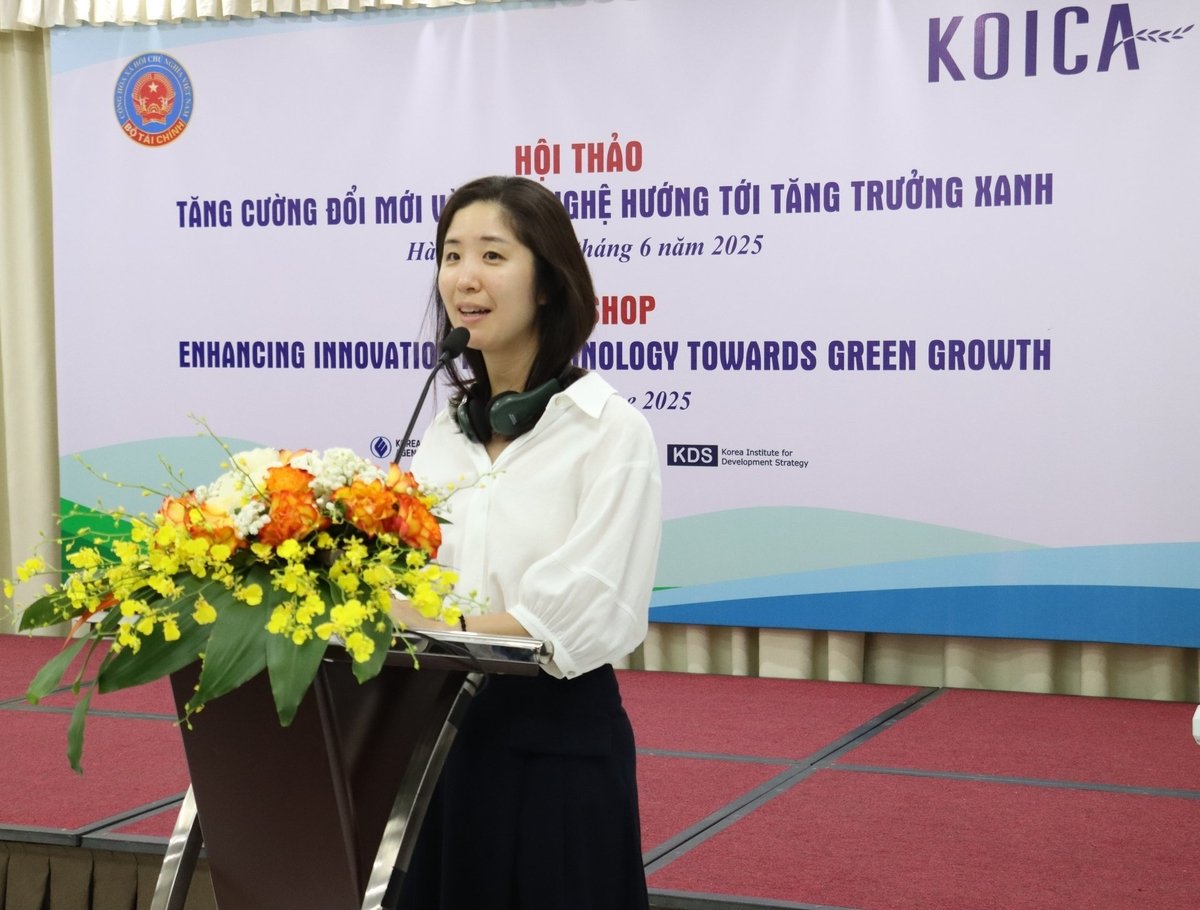
Ms. Yookyung Lee, Deputy Country Director of KOICA in Vietnam, speaks at the workshop. Photo: Nguyen Thuy.
In her opening remarks, Ms. Yookyung Lee, Deputy Country Director of KOICA in Vietnam, emphasized that Vietnam must promote technological innovation and mobilize international cooperation to achieve its net-zero emissions target by 2050.
According to Ms. Lee, in the context of the green transition, Vietnam faces multiple challenges, including the need for significant investment in the “twin transition” of digitalization and greening, climate change adaptation, sustainable energy transformation, and meeting ESG (Environmental, Social, and Governance) requirements in global supply chains. International cooperation is key to helping Vietnam address these challenges effectively.
In recent years, the Korean Government, through the Korea International Cooperation Agency, has supported Vietnam by jointly implementing the project “Promoting energy efficiency and conservation investment market in the industrial sector and supporting the implementation of the Vietnam green growth action plan.”
As part of this initiative, the component “Support for developing technical reports on provincial green growth action plans” has been carried out to assist localities in formulating technical reports. These reports serve as the basis for adopting and executing provincial green growth action plans, in line with Vietnam’s National Green Growth Strategy for the 2021–2030 period, with a vision to 2050.
At the workshop, delegates discussed key challenges faced by Vietnamese enterprises in the “twin transition” process and shared practical solutions and lessons learned from both domestic and international experts.
Speaking on green technology in the transport sector, Ms. Jin Young Kim, Senior Researcher at the Korea Research Institute on Climate Change (KRIC), highlighted that transportation accounts for approximately 18% of Vietnam’s total greenhouse gas emissions. This is also a major source of PM2.5 fine particulate pollution in major cities such as Hanoi and Ho Chi Minh City. This pollution is estimated to cause economic losses of around USD 14 billion and tens of thousands of premature deaths each year.
Against this backdrop, Ms. Kim emphasized that green transport technologies are critical for Vietnam to reduce emissions and air pollution, paving the way toward sustainable development.
She noted that trends such as vehicle electrification, the development of electric cars and e-buses, and the use of clean fuels like hydrogen are gaining momentum. In Vietnam, VinFast is taking the lead with plans to produce 600,000 electric cars and 500,000 electric motorbikes annually, supported by more than 150,000 charging stations provided through its V-Green network.
In parallel, green public transport systems, such as Bus Rapid Transit (BRT) in Hanoi and Da Nang, are being expanded. Vietnam’s Green Growth Strategy for 2021–2030, with a vision to 2050, sets out targets to reduce emissions per unit of GDP by 15–30% and prioritizes public transport and electric vehicles. The government has also introduced various incentives, including import tax reductions, registration fee exemptions, and cuts to special consumption tax and VAT for electric vehicles.
Moreover, Vietnam is actively cooperating with international partners such as South Korea, Japan, and the EU to develop electric vehicle technologies, battery storage, and smart infrastructure, while also accessing financial resources from the World Bank and the Asian Development Bank (ADB).
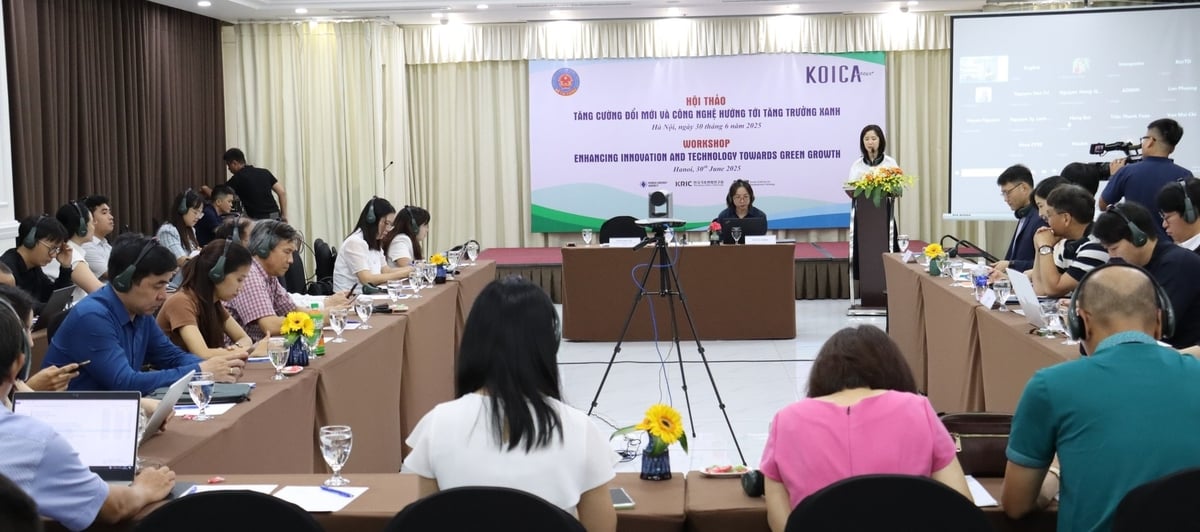
The workshop is part of the communication activities under the component “Support for developing technical reports on provincial green growth action plans.” Photo: Nguyen Thuy.
However, the transition still faces numerous challenges, including the high cost of electric vehicles compared to fossil-fueled ones, underdeveloped charging infrastructure, and the widespread availability of cheap used vehicles, which slows down the replacement process.
To overcome these barriers, Ms. Kim recommended that Vietnam continue investing in charging infrastructure, support cost reductions for consumers, develop smart public transportation systems, and strictly enforce emission regulations.
“Green technology is not just a technical solution, it is the key to achieving net-zero emissions, protecting public health, and building a sustainable economy,” emphasized Ms. Jin Young Kim.
Introducing the Global Eco-Industrial Parks Programme (GEIPP) in Vietnam, Ms. Nguyen Tram Anh, National Project Manager at UNIDO Vietnam, noted that the international framework for eco-industrial parks was first developed in 2017 and revised in 2021, now comprising a total of 64 evaluation indicators.
Notably, during the implementation of the eco-industrial park model in Vietnam, many successful initiatives have been applied, helping to save energy, reuse resources, and reduce emissions.
A prominent example is a steel factory in Da Nang, where measures such as installing natural skylights, replacing high-pressure lamps with LED lights, reusing rolling oil, insulating steam pipes, and reusing treated wastewater have led to annual savings of VND 1.5 billion and a reduction of over 4,300 tons of CO₂ emissions.
In addition, several outstanding industrial symbiosis models have been implemented in major industrial zones. At Amata Industrial Park, for instance, Green Energy Company uses biomass by-products, such as rice husks, coconut shells, and scrap wood, to generate saturated steam for the PepsiCo factory. This model helps recycle 60,000 tons of waste and reduce more than 16,000 tons of CO₂ annually.
In another case, at Khanh Phu Industrial Park (Ninh Binh), CO₂ emissions from the Ninh Binh Fertilizer Plant are captured and liquefied for use in the food and medical industries. Upon expanding capacity, this initiative is expected to reduce emissions by up to 128,000 tons of CO₂ per year.
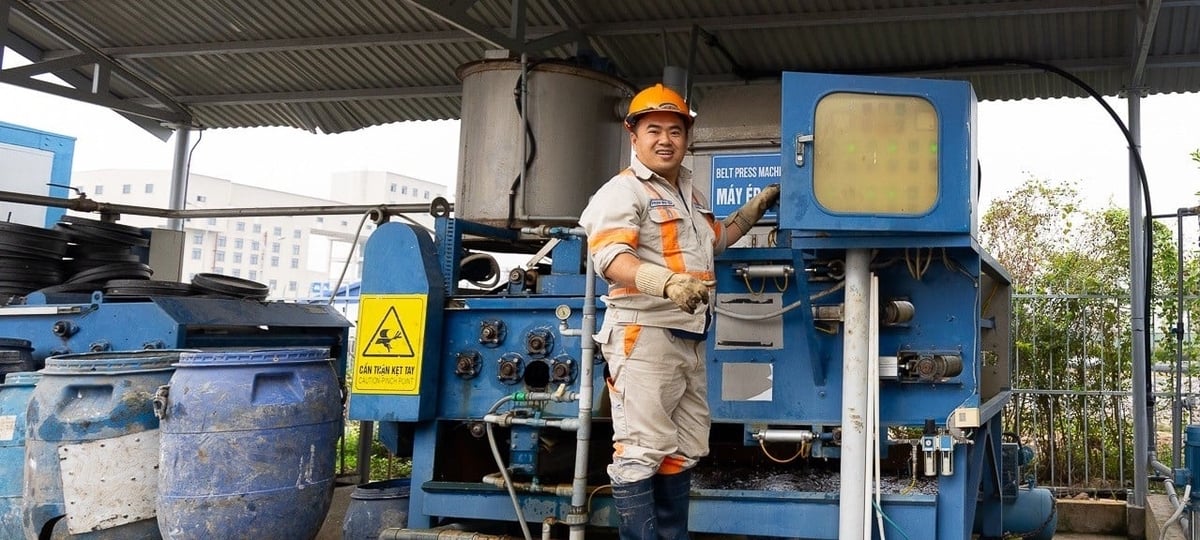
Vietnam has favorable conditions to promote the greening of industrial zones, gradually transitioning from the traditional model to eco-industrial parks. Photo: Minh Hoang.
“These examples demonstrate that Vietnam has favorable conditions to promote the greening of industrial zones, gradually transitioning from traditional models to eco-industrial parks, thereby contributing to the realization of green growth and sustainable development goals,” affirmed Ms. Nguyen Tram Anh.
At the workshop, participants also shared their experiences and challenges in developing eco-industrial parks in Vietnam, as well as green solutions in the transport sector. Notably, the workshop served as a platform to connect policymakers, businesses, and experts in exploring technological innovation and green investment opportunities. These efforts aim to support the successful implementation of the National Green Growth Strategy for the 2021 - 2030 period, with a vision to 2050.
$ 1 = VND 26.120 - Source: Vietcombank.
Translated by Phuong Linh
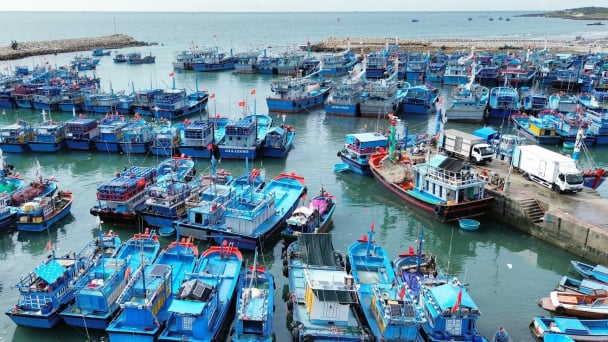
(VAN) Deputy Minister Phung Duc Tien has called on the South Central and Central Highlands Representative Office of the Vietnam Agriculture and Nature Newspaper to further strengthen communication to combat IUU fishing.
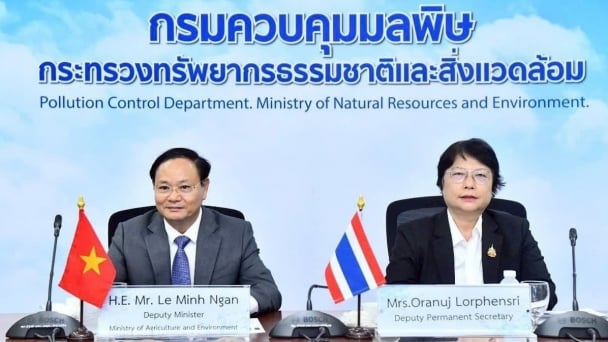
(VAN) Recently, in Bangkok, Thailand, the working delegation from Vietnam's Ministry of Agriculture and Environment, led by Deputy Minister Le Minh Ngan, has visited and worked with Thailand's Ministry of Natural Resources and Environment.
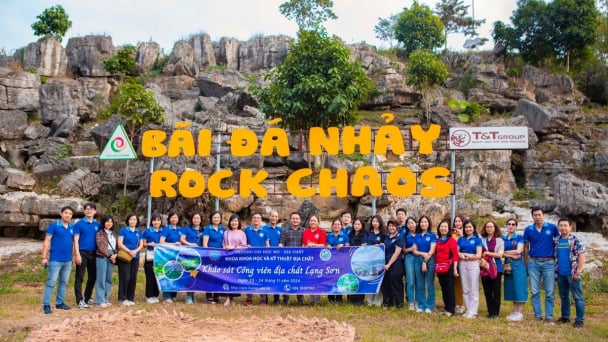
(VAN) On the afternoon of June 28, the ceremony to receive the certificate recognizing Lang Son as a UNESCO Global Geopark was held in Lang Son city.
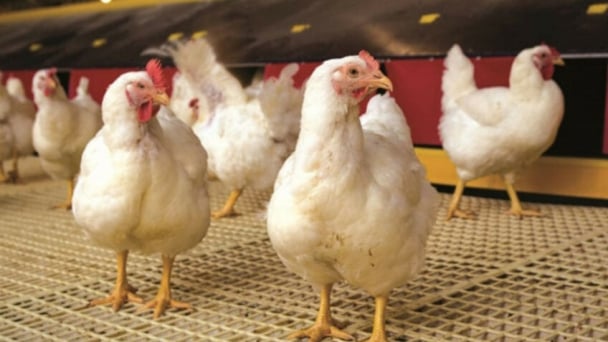
(VAN) Brazil is officially free from highly pathogenic avian influenza (HPAI) in commercial poultry farms, having completed the 28-day sanitary standstill.
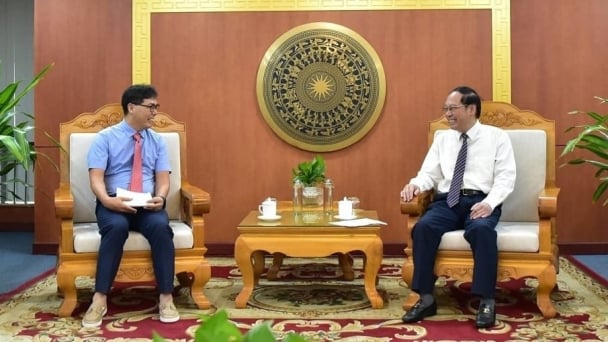
(VAN) ECOEYE Korea expressed interest in cooperating with Vietnam in transferring advanced recycling technologies and developing the carbon market.

(VAN) At the SB62 Conference, the Vietnamese negotiation delegation engaged with several partners to promote cooperation on climate change response in Vietnam.